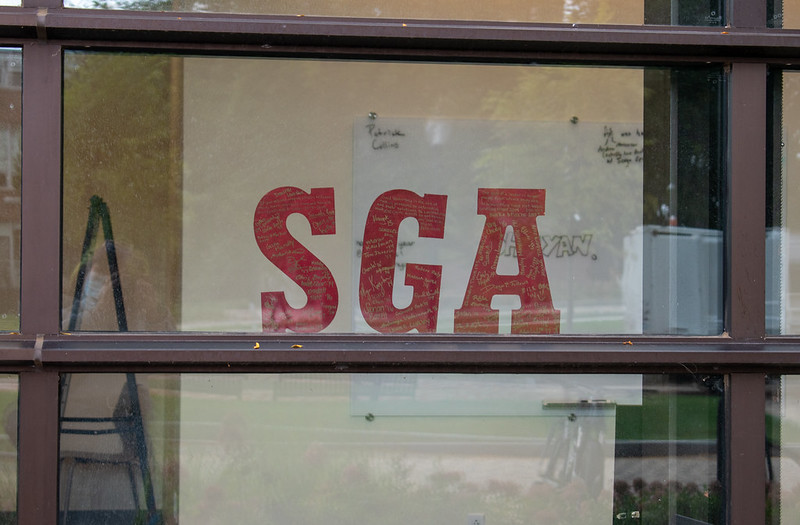Marco Ulysse and Kofi Asibey are running for president and vice president of the University of Massachusetts Student Government Association, with a campaign centered around equity and transparency.
Ulysse is a junior theatre major and current SGA senator. He is also a dancer for the Haitian American Student Association, a general body member of the Cape Verdean Student Alliance and a member of the UMass athletic department’s newly reestablished DEI task force.
Asibey is a junior operations and information management major. He is currently the vice president of the UMass Brotherly Union. Asibey noted hasn’t served in the SGA, but emphasized his experience with a variety of Registered Student Organizations, including the UMass Fashion Organization and Brothers and Sisters in Christ. According to Asibey, his experiences have prepared him for the vice presidency by showing him “the balance and unity on campus.”
“There shouldn’t be a stigma behind who can represent students based on what you’ve accomplished and what you haven’t,” Ulysse said. “All it takes is someone to step into that role and get the job done.”
If the ticket is successful, Ulysse and Asibey plan to focus on justice, equity, student life and supporting RSOs. Ulysse wants to ensure that “everyone has their needs met,” in a way that aligns with students’ beliefs and needs. Both candidates expressed worry that the SGA isn’t authentically connected to the student body.
“We can’t represent the students if we’re not working with the students, if we’re not voicing the student’s concerns, if we’re not even hearing the students,” Ulysse said. He would like the SGA to “have a different type of reach than what it currently has.”
Asibey noted, “most students don’t even know where to go to express what they may be feeling… [to ensure] their needs are met and it’s just not getting thrown under the rug.”
Ulysse described how he has been an advocate for student concerns in the past, as he’s often been the sole link between other students and the SGA. He hopes to offer, “the same type of platform — to even [simply] vocalize what they’re going through — to every single student on this campus.”
“SGA was created to advocate for students, to be the voice. If we’re not able to meet those needs… then we’re not doing what the SGA is supposed to be doing,” Ulysse said.
To rectify this divide, their campaign advocates for a student task force, consisting of student representatives from several different campus communities, to create a more diverse outreach program.
By including members from every representative organization on campus, the task force will seek to aggregate concerns within subgroups to better connect with the SGA. For example, the group can help ensure off-campus students’ needs are met, as on-campus students are often the primary focus of the University’s programming and events, according to Asibey.
Once the SGA can properly measure student concerns, Ulysse and Asibey will be better equipped to amplify and advocate for students.
Both men say that their strengths lie in their leadership and communication skills. They both have acted as conduits for social change on campus, through their involvement in student groups. Ulysse and Asibey said they want to bring social change to campus on a broader scale.
Their skills can, “elevate what our campaign is about: bringing unity, diversifying the campus and bringing change in general,” Ulysse said.
This can be done by “letting people know that they can be involved in student government without being in the SGA,” Asibey said.
Voting for SGA elections will start on March 7 and close on March 10, via Campus Pulse. Voters will elect SGA president, vice president, student trustee and multiple senate seats.
Daniel Frank can be reached at [email protected].




















